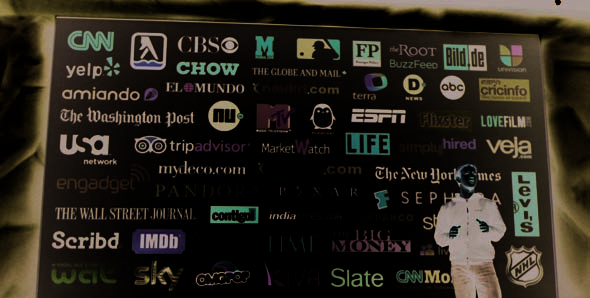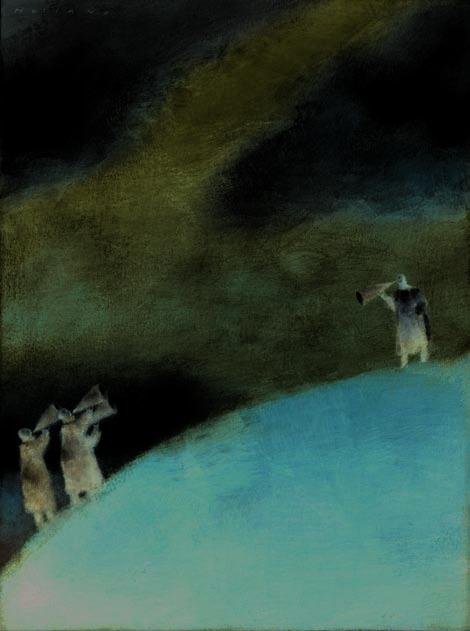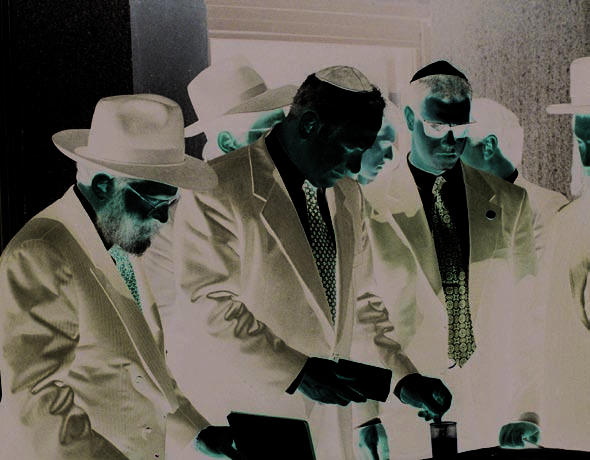vertising sides of the news business. Ad-
or television program, it may be appropri-
vertisers must not influence favorable cov-
ate to reimburse her reasonable expenses,
erage or suppress negative reporting. Any
including meals, travel, and lodging. But
advertisement should be clearly labeled so
“checkbook journalism” and bidding for
there is no possibility of confusing an ad
news should be avoided.
with news reporting or commentary.
Memberships in clubs, associations, po-
Ethical Issues When
litical parties, or religious organizations
Covering Government
can create a conflict of interest for a jour-
Reporting on government raises partic-
nalist. Some news organizations prohibit
ularly difficult challenges. The public
certain kinds of political or philanthropic
generally expects journalists to act as watch-
activities, such as running for political of-
dogs, guarding against improper government
fice or volunteering with an advocacy
behavior. But what about when law enforce-
group. Most forbid journalists to report on
ment officials ask reporters not to report the
organizations with which they, or close
details of an ongoing hostage situation, for
family members, are affiliated. Although
example? Should journalists cooperate? If
an editor at the Washington Post even ab-
they do not, lives may be endangered. But if
stained from voting in elections, individu-
they do, they may compromise their own
als obviously do not surrender their civil
ability to hold government accountable.
rights when they choose to become jour-
During war, crisis, or emergency, jour-
nalists. But it is important to remember
nalists may feel conflicting loyalties. The
that affiliations can be interpreted as bias.
pressure to be patriotic can be great. Or a
If a conflict of interest is unavoidable, it
newly elected government may claim that
should be disclosed.
it cannot afford a completely free press and
Many news organizations have special
will urge journalists to write favorably as a
rules for reporters and commentators who
way to help solidify a fragile and emerging
cover business and financial topics. Laws
democracy. Sometimes journalists are
forbidding insider trading (buying and
asked to report propaganda as truth in the
selling stocks and other equities when one
interest of protecting “national security.”
possesses nonpublic knowledge that may
When editorial decisions conflict with
affect the stock price) may apply. Journal-
government wishes, news organizations
ists should not write about companies in
can be criticized for substituting their own
which they own stock or have some other
judgment for that of elected officials. This
financial interest, particularly if their re-
can arise when the government claims
porting might influence the market and
that there is a compelling need for secrecy
benefit them personally. They should dis-
about intelligence and law enforcement
close to their editors the financial instru-
matters. On the other hand, journalists
ments they and their families own and
may also be condemned for withholding
refrain from trading stocks within a short
information or accused of delaying publi-
time of writing about them.
cation for partisan reasons.
Just as journalists should not take
These are difficult calls. The answers
payments intended to influence news cov-
are not always easy. One guiding principle
erage, they should not offer bribes or pay-
is that a journalist’s loyalty is to the public,
[ 49 ]
[ T h e r e s p o n s i b i l i t i e s o f J o u r n a l i s t s ]
not to a particular government or regime.
But when errors do occur, they should
No journalist wants to harm his commu-
be acknowledged promptly and correct-
nity or country. But governments may be
ed prominently.
tempted to suppress critical reporting by
claiming it could damage public safety or
Special Ethics Issues Raised by
national security. Reporters can respect
New Media and Citizen Journalism
these claims, but they should also be skep-
Most, if not all, traditional media’s eth-
tical. They can give government officials
ical guidelines make sense for citizen
an opportunity to explain why a particular
journalists, bloggers, and other new media
story might endanger lives or a specific na-
practitioners. But those who publish in
tional interest. But journalists should scru-
cyberspace face additional challenges.
tinize those in power and hold them to ac-
Bloggers, unlike mainstream journal-
count. Sometimes, the most patriotic thing
ists, often publish anonymously or use a
a journalist can do is question authority.
pseudonym. In some societies, those hold-
ing controversial or dissenting views with-
Being Accountable to the Public
A
hold their identity as a matter of personal
n important part of a journalist’s job
safety. But those who speak anonymously
is to hold those in positions of au-
still have an ethical obligation to be truth-
thority accountable to the public. News
ful, accurate, and as transparent as pos-
organizations have a similar ethical obli-
sible about conflicts of interest.
gation of accountability.
Many bloggers encourage readers to
The news media are more transparent
engage in the discussion and to add com-
than many businesses because their work
ments to their sites. They may invite user-
product is constantly available for scru-
generated content and post it on their
tiny. Journalists regularly critique and
blogs. They may link to external sites. And
challenge each other’s work. And in most
they may excerpt others’ work for the pur-
countries, the consumer has many news
pose of commentary and criticism.
choices and can reject those whose stan-
All these techniques add vitality to a
dards fall short.
blog. But bloggers should consider whether
That said, most news organizations
they will attempt to verify links and to
can do more to be accessible to the public.
moderate postings made by others, as well
If business or political affiliations influ-
as whether they will establish policies for
ence their editorial choices, they should
certain content types, such as sexually ex-
be disclosed. Did a merchant who adver-
plicit video or personal attacks. It is wise
tises heavily in a newspaper, for instance,
to post these policies prominently and to
request favorable news coverage? Media
apply them consistently.
should explain how they make editorial
decisions, especially controversial ones.
Using Social Media
Deviations from usual ethical standards
Many journalists, both traditional and
should be explained. News organizations
new media practitioners, are turning
should invite readers to comment and en-
to social media, such as Facebook, Orkut,
courage them to raise concerns and com-
and MySpace, or tapping into YouTube or
plaints. Ideally, a dedicated, impartial staff
other sites that allow individuals to post con-
member should address these complaints.
tent. These media can provide story ideas and
All news organizations make mistakes.
useful leads. They can even allow a journalist
They should strive to minimize these
to interact with a community or to promote a
by establishing fact-checking proce-
journalism “brand” by encouraging readers
dures throughout the editorial process.
to visit a news organization’s Web site.
[ 50 ]

[ M e d i a L a w | H a n d b o o k ]
Above: Social media raises new questions for journalists. Facebook CEO Mark Zuckerberg delivered the keynote address at an internet conference in San Francisco on April 21, 2010.
But social media pose new challenges
has been posted to the social media, there
for the ethical journalist. Verifying post-
is really no way to take it back or to stop
ings can be difficult. Reporters should
others from using it in whatever way
make clear when they utilize social media
they choose.
sites as the basis for a story. They should
exercise special caution when using infor-
Conclusion
mation concerning minors, which could
Many journalists believe they should
damage someone’s reputation, or when us-
not have to justify their role as gov-
ing information that someone else claims
ernment watchdogs and as conduits of
to own—such as a trade secret. The laws
public information. Surely, they think,
of libel, privacy, and copyright still apply
modern recognition that freedom of ex-
in cyberspace.
pression is a fundamental right has al-
Some news organizations have adopt-
ready settled all that. Therefore, some
ed ethics policies for their employees’ use
journalists think that they must have
of social media. Dow Jones, publisher of
the legal right to be wrong—sometimes.
the Wall Street Journal, discourages its
But journalists’ own ethical standards
reporters from expressing personal or
can be more stringent than legal ones.
partisan viewpoints on their personal
They encourage journalists to examine
Facebook pages or from discussing devel-
their motivations, their methods, and their
oping stories that have not yet appeared
work product. They encourage reporters
in the newspaper. Some organizations
and editors to ask tough questions about
recommend that a reporter maintain sep-
how they make decisions. And these eth-
arate professional and personal Facebook
ical precepts invite journalists both to
pages. Journalists should remember that
consider other perspectives and to contem-
friending a confidential source on Face-
plate how their decisions affect others.
book may reveal that source’s identity to
Adopting and applying ethics princi-
the world. They also should recall that
ples can seem daunting. But they help
decisions to friend or to join a fan page
journalists do the best job possible. They
may be construed as evidence of bias.
provide a mandate to act independently
Finally, nothing on Facebook or simi-
—even courageously—when seeking and
lar sites is really private. Once something
pursuing truth.
[ 51 ]

[ n e w M e d i a , C i t i z e n J o u r n a l i s t s , a n d B l o g g e r s ]
E veryone is in favor of free speech. Hardly
a day passes without its being extolled, but some
people’s idea of it is that they are free to say
whatever they like, but if anyone says anything
back, that is an outrage.
Sir WinSton churchill
British Prime Minister
Speech, House of Commons—1943
[ 52 ]
[ M e d i a L a w | H a n d b o o k ]
New Media,
Citizen Journalists, and Bloggers
he freewheeling world of the blogosphere seems like
the last bastion of truly free speech. One does not
need a lot of money, an expensive printing press, or
a transmitter tower. Anybody with access to a computer, a
modem, and a little software can share his thoughts with
the world through a weblog, or blog. And many of the
intensely personal and highly opinionated weblogs prolif-
erating on the Internet inhabit a world apart from the
sometimes-dreary realm of meticulously sourced and fact-
checked traditional journalism. Bloggers are a law unto
themselves. Or are they?
Balancing Free Speech and
cafes to purchase licenses, and banning
Competing Internet Interests
Internet cafes.
From the early days of popular use of In the United States, Congress, state the Internet, the rallying cry was that
legislatures, and the courts have strug-
cyberspace was the new frontier, subject
gled to balance free speech on the Inter-
to no law. But governments around the
net against competing interests, like na-
world, shaken by the implications of the
tional security, copyright protection, and
new communication technology, have tried
the right to reputation. In its landmark
to figure out how to harness and control
Reno v. ACLU (American Civil Liberties
its use.
Union) decision (1997), the U.S. Supreme
Gaining access to the Internet can be
Court extended to communications on the
the first hurdle. A 2007 report by the In-
World Wide Web the same First Amend-
ternet watchdog group OpenNet Initiative
ment protections covering newspapers or
showed that attempts to censor the Web
other print media. Cyberspace, the Court
are spreading and growing more sophisti-
ruled, is neither a “scarce expressive
cated. Saudi Arabia, to offer one example,
commodity,” like the broadcast spectrum
uses filtering software to block everything
used by radio and television broadcasters,
from sites classified as pornography or
nor an invasive one that enters “an indi-
gambling to religious conversion sites and
vidual’s home or appears on one’s com-
sites critical of the Saudi monarchy. China
puter screen unbidden.” With neither of
has been criticized for a combination of
these historical justifications for govern-
Internet control measures, including filter-
ment licensing and control applicable,
ing software, requiring users and Internet
Justice John Paul Stevens wrote for the
[ 53 ]
[ n e w M e d i a , C i t i z e n J o u r n a l i s t s , a n d B l o g g e r s ]
majority, “The interest in encouraging
cency Act, which immunizes providers of
freedom of expression in a democratic soci-
“interactive computer services” (ISPs)
ety outweighs any theoretical but unprov-
from defamation claims arising from
en benefit of censorship.”
third-party content. Courts have extend-
The Reno decision means that Internet-
ed this protection to those who operate
based communication receives the high-
Web sites and listservs, even if they exer-
est level of constitutional protection, in-
cise some editorial control over that ma-
cluding many judicial rulings defining
terial. The same analysis logically would
the scope of the First Amendment. Prior
apply to blogs.
restraints are presumed unconstitutional.
Successful libel suits require proof of
Holding Bloggers Accountable
publisher fault, even if a plaintiff proves
So does that mean that bloggers are
the challenged statement false. Most in-
free to upload whatever they want,
vasion of privacy suits will be rejected if
with no fear of being sued?
the publisher can demonstrate that the
Absolutely not. Whatever immunity
subject of its story was newsworthy.
may exist for links to third-party sites
Copyright violations may be excused if
or to postings submitted by readers, a
the publication constitutes fair use.
blog publisher can still be sued for any
One need not be a recognized journal-
material he writes himself. During the
ist to invoke these protections. As far
course of litigation, the blogger could
back as 1972, the U.S. Supreme Court
face a protracted examination of his
said, “Liberty of the press is the right of
news-gathering techniques. Did he at-
the lonely pamphleteer…as much as of
tempt to verify the accuracy of the story,
the large metropolitan publisher.”
or did he simply repeat an unsubstanti-
So bloggers have First Amendment
ated rumor? Did he rely on anonymous
protections. They may have statutory pro-
sources? Did he, in other words, act neg-
tection as well. Existing laws protecting
ligently or with reckless disregard for
reporters’ confidential sources might or
the truth? If a court finds that he did, he
might not apply to a blogger, depending on
may lose the suit.
the language of the statute or the court
In most countries, libel suits can be
addressing the issue. Although some laws
grounded only in false statements of fact.
limit coverage to full-time employees of
No one can be sued for statements of
for-profit traditional news media, many
pure opinion that can be proven neither
are expansive, covering anyone who en-
true nor false. But many blogs are a ro-
gages in gathering information and dis-
bust mixture of idiosyncratic opinion and
seminating it to a wide audience. A Cali-
unsupported allegation. It can be hard to
fornia court ruled that the state shield law
distinguish between the two when invok-
protected the identities of bloggers who re-
ing an opinion privilege, which requires
vealed Apple Computer’s trade secrets.
showing that the underlying factual
Their publications, the court ruled, consti-
statements on which the opinion is based
tuted “news.” But shortly thereafter, a
are true.
federal court in the same state refused to
U.S. legal protections end at the bor-
acknowledge that blogger and self-de-
der but the Internet does not. A blogger in
scribed anarchist Josh Wolf was a journal-
the United States can brandish the First
ist because he was not “connected with or
Amendment and Section 230 all she
employed by” a news organization.
wants, but a foreign court has no obliga-
U.S. courts have interpreted broadly
tion to pay any attention. Those courts
Section 230 of the Communications De-
will, for the most part, apply their own
[ 54 ]

[ M e d i a L a w | H a n d b o o k ]
laws. Although traditional journalists
Libel lawsuits are not all that blog-
long have faced lawsuits and even crimi-
gers need worry about. Statutes in many
nal prosecutions in other countries
countries make it an offense, or even a
where their work product is distributed,
crime, to “insult” or “offend the digni-
it may surprise bloggers to learn they
ty” of someone, even if the criticism is
are vulnerable to suit anywhere their
absolutely true. For example, in 2008,
words are read.
blogger Raja Petra Kamarudin, editor
The Australian High Court so ruled
of the Web site Malaysia Today, was ar-
in 2002, when it allowed “Diamond Joe”
rested and detained on charges of vio-
Gutnick to file a libel suit. An Austra-
lating Malaysia’s Internal Security Act
lian national, Gutnick claimed that an
by criticizing Islam.
article published online by U.S.-based
Many countries enforce mandatory
Barron’s magazine defamed him. When
rights of reply, which compel publication
Gutnick showed that a handful of read-
of responses by individuals and corpora-
ers in his hometown of Melbourne down-
tions who claim they have been the sub-
loaded the story, the court allowed him
ject of inaccurate reports. In 2006, the
to file a libel suit there. The chief justice
European Parliament adopted a Council of
wrote, “[T]hose who post information on
Europe recommendation to extend these
the World Wide Web do so knowing that
rights of reply to online media, including
[it] is available to all and sundry without
any “service available to the public con-
any geographic restriction.”
taining frequently updated and edited
Above: Australian philanthropist “Diamond Joe” Gutnick (left) sued U.S.-based Barron’s magazine in 2002 for defaming him in an article posted online. Even though the al eged defaming article was published in the United States, the Australian High Court decided any article available online can be considered published wherever it is read, thus granting Gutnick the right to sue in Melbourne.
[ 55 ]
[ n e w M e d i a , C i t i z e n J o u r n a l i s t s , a n d B l o g g e r s ]
information of public interest.” That
courtrooms and post trial footage online,
sounds like a typical weblog.
a practice they find both disruptive and
Many bloggers already take these
undignified. Gatekeepers often support
steps. They update their blogs, often print
access to government records and pro-
retractions or modifications to errone-
ceedings in the abstract; once access be-
ous postings, and freely publish respons-
comes cheap and easy,










